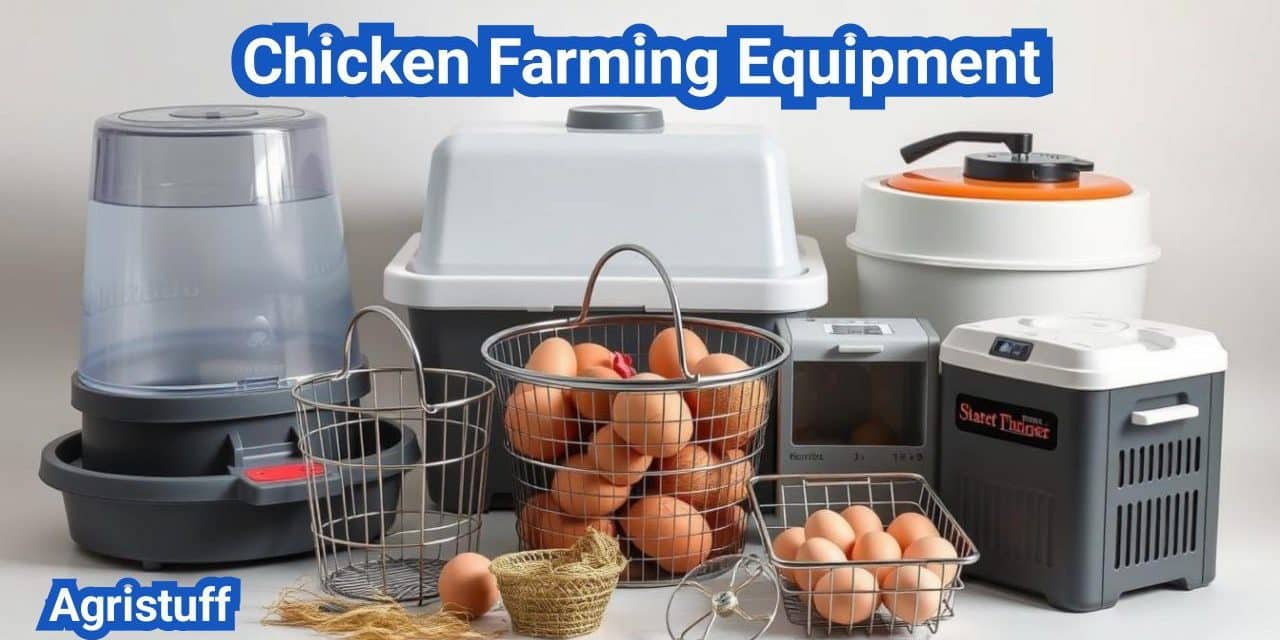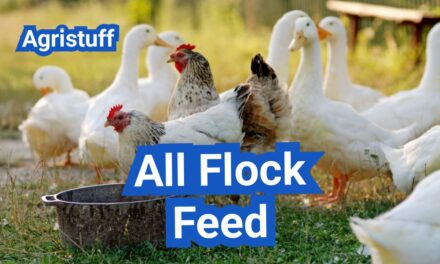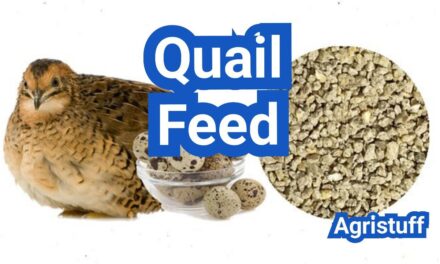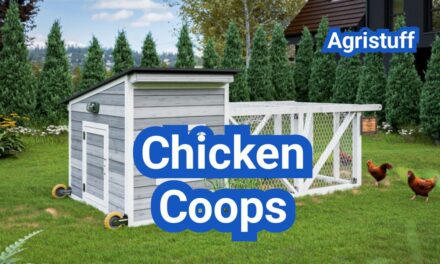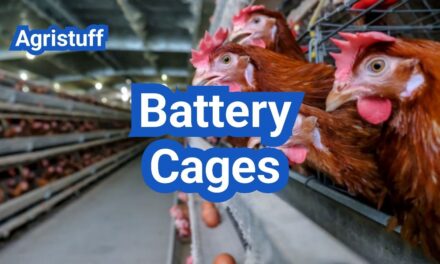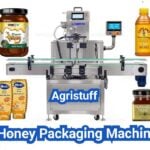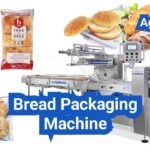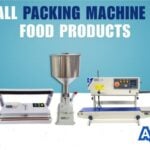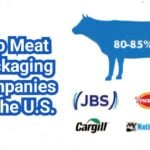Establishing a successful poultry business requires careful planning and the right chicken farming equipment. The size of your farm plays a significant role in determining the type and amount of poultry farm equipment needed.
Automating a poultry farm can offer numerous benefits, including increased efficiency, better production, reduced labor costs, and improved animal welfare. By investing in the right equipment for poultry production, farmers can significantly enhance their operations and increase profits.
Key Takeaways
- Proper equipment is crucial for a successful poultry business.
- The size of the farm determines the type and amount of equipment needed.
- Automation can lead to increased efficiency and reduced labor costs.
- Investing in the right equipment can improve animal welfare and increase profits.
- A well-planned chicken farm equipment list is essential for optimal operations.
Understanding the Fundamentals of Poultry Farming
Understanding the basics of poultry farming is crucial for anyone looking to start or expand their poultry business. Poultry farming encompasses a wide range of activities, including egg production, meat production, and breeding. The type of poultry operation significantly influences the equipment needs.
Types of Poultry Operations
Poultry operations can be broadly categorized into egg production, meat production, and hatchery or breeding operations. Egg production farms focus on laying hens and require equipment like nesting boxes and egg collection systems. Meat production involves raising chickens for meat, necessitating different housing and feeding systems.
Hatcheries specialize in incubating eggs and raising chicks until they’re ready for distribution to farms. The equipment needs for these operations vary significantly, with incubators and brooders being essential for hatcheries.
Scale Considerations: Small vs. Commercial
The scale of a poultry operation is another critical factor that determines equipment needs. Small-scale operations might start with basic equipment and manual processes, while commercial operations require more sophisticated and automated systems to manage large numbers of birds efficiently.
For instance, small farms might use manual feeders and waterers, whereas commercial farms often employ automated feeding and watering systems to reduce labor costs and improve efficiency.
Equipment Needs Based on Business Goals | Chicken Farming Equipment
Business goals play a significant role in determining the type and scale of equipment needed for poultry farming. Farmers aiming to expand their operations or increase productivity might invest in advanced equipment like automated ventilation systems or sophisticated feeding systems.
It’s essential to assess business goals and match them with the appropriate equipment. For example, farms focusing on organic or free-range production might require different housing solutions and feeding systems compared to conventional farms.
Planning Your Chicken Farming Equipment Investment

To establish a profitable poultry business, farmers must strategically plan their equipment investments. This involves making informed decisions about budgeting, prioritizing purchases, and choosing between new and used equipment.
Budgeting for Essential Equipment | Chicken Farming Equipment
Creating a comprehensive budget is the first step in planning your chicken farming equipment investment. Farmers should start by identifying the essential equipment needed for their operations, such as poultry housing solutions, chicken incubators, and brooders. The cost of this equipment can vary widely depending on the scale of the operation and the quality of the equipment.
It’s crucial to research and compare prices from different suppliers to find the best value for your investment. Additionally, farmers should consider the long-term costs associated with equipment maintenance and repairs.
Prioritizing Equipment Purchases | Chicken Farming Equipment
Once a budget is established, farmers need to prioritize their equipment purchases based on their business needs and goals. For example, a new farmer may need to prioritize basic necessities like feeders, waterers, and housing. As the business grows, they can then invest in more advanced equipment such as egg collection systems and ventilation systems.
Prioritization helps in managing costs and ensuring that the most critical equipment is acquired first, thereby facilitating a smoother operation.
New vs. Used Equipment Considerations
One of the key decisions farmers face is whether to purchase new or used equipment. While new equipment offers the advantage of being in pristine condition and often comes with warranties, used equipment can be a cost-effective alternative. However, it’s essential to inspect used equipment thoroughly to ensure it’s in good working condition.
Farmers should weigh the pros and cons of each option, considering factors like durability, maintenance costs, and the potential for technological advancements in newer models. For instance, investing in modern chicken incubators and brooders can significantly improve efficiency and productivity.
Comprehensive Chicken Farm Equipment List
A comprehensive chicken farm equipment list is crucial for both beginners and seasoned poultry farmers. Having the right equipment is essential for maintaining a healthy flock, improving productivity, and ensuring the overall success of the farm.
Essential Equipment Categories | Chicken Farming Equipment
Chicken farm equipment can be broadly categorized into several essential areas. These include:
- Poultry Housing: Coops, runs, and fencing to protect and manage the flock.
- Feeding and Watering Systems: Equipment for delivering feed and water efficiently.
- Health Management: Tools for monitoring and maintaining the health of the chickens.
- Egg Production: Nesting boxes, egg collection systems, and related equipment.
Starter Equipment for Beginners | Chicken Farming Equipment
For those just starting out in poultry farming, it’s essential to begin with the basics. Starter equipment typically includes:
- Basic coop and run structures.
- Simple feeding and watering systems.
- Nesting boxes for egg-laying hens.
- Basic health management tools, such as vaccination equipment.
As emphasized by industry experts, “Starting with the right equipment can make a significant difference in the success of your poultry operation.”
Advanced Equipment for Scaling Operations
As a poultry farm grows, so does the need for more advanced and efficient equipment. This can include:
- Automated feeding and watering systems.
- Advanced ventilation systems for improved climate control.
- Mechanized egg collection and processing equipment.
- Sophisticated health monitoring systems, including biosecurity measures.
Investing in advanced equipment can significantly enhance productivity and efficiency, allowing the farm to scale effectively. As noted by a leading poultry farming publication, “Adopting technology and advanced equipment is key to remaining competitive in the modern poultry industry.”
Poultry Housing Solutions: Creating the Ideal Environment

A well-designed poultry housing system is vital for ensuring the optimal conditions for chicken farming. The right housing solution can significantly impact the health, welfare, and productivity of the flock.
Coop Designs and Structures
The design and structure of chicken coops are crucial elements in poultry housing. Coop designs vary widely, from simple, DIY structures to complex, automated systems. The choice of coop design depends on factors such as the size of the operation, climate, and available resources.
“The coop is the heart of any poultry operation,” says a leading poultry farming expert. “It’s where your chickens will spend most of their time, so it needs to be safe, comfortable, and well-ventilated.”
Battery Cage Systems | Chicken Farming Equipment
Battery cage systems are a popular choice for large-scale poultry operations. These systems involve housing chickens in cages stacked in tiers, maximizing space efficiency. Battery cage systems offer several advantages, including improved disease control and easier egg collection.
- Increased egg production per square foot
- Better disease control through isolation
- Easier management and labor efficiency
Free-Range Housing Options
Free-range housing options are gaining popularity due to consumer demand for eggs and meat produced under more natural conditions. Free-range systems allow chickens to roam outdoors, promoting better welfare and potentially improving the quality of the produce.
However, free-range systems also present challenges, such as increased vulnerability to predators and the need for robust fencing. “Free-range systems require careful planning and management to ensure the health and safety of the flock,” notes a poultry farming specialist.
In conclusion, the choice of poultry housing solution depends on various factors, including the scale of operation, business goals, and market demands. By understanding the different options available, poultry farmers can make informed decisions to create an ideal environment for their flocks.
Chicken Feeders and Waterers: Nutrition Delivery Systems
Chicken feeders and waterers are essential equipment for any poultry operation, ensuring birds receive proper nutrition.
Types of Feeding Equipment | Chicken Farming Equipment
There are various types of chicken feeders available, each designed to meet specific needs. Trough feeders are simple and effective, providing a continuous supply of feed. Tube feeders are another popular option, capable of holding a large quantity of feed while minimizing waste.
For smaller operations or backyard flocks, poultry feeder pans are a practical choice. These are often used in conjunction with hanging feeders to prevent spillage and contamination.
Water Delivery Solutions | Chicken Farming Equipment
Just as crucial as feeding equipment, waterers ensure that chickens have access to clean, fresh water at all times. Nipple waterers are highly efficient, reducing spillage and contamination by allowing birds to drink directly from the nipple.
Open waterers, such as bell waterers or dish waterers, are also used, especially in smaller setups. However, they require more maintenance to keep the water clean.
Regardless of the type chosen, it’s essential to regularly clean and inspect both feeders and waterers to prevent disease and ensure the health of the flock.
Chicken Incubators and Brooders: Hatching and Rearing Equipment

Investing in the right chicken incubators and brooders is a critical step in establishing a thriving poultry operation. These pieces of equipment are fundamental to the hatching and rearing processes, directly impacting the health and productivity of your flock.
Selecting the Right Incubator | Chicken Farming Equipment
Choosing the appropriate incubator is vital for successful hatching. Incubators come in various sizes and types, including still-air and forced-air models. Still-air incubators are simpler and less expensive but may have less consistent temperature distribution. Forced-air incubators, on the other hand, provide better temperature control and humidity management, leading to higher hatch rates.
When selecting an incubator, consider factors such as:
- Capacity: How many eggs do you plan to incubate at once?
- Temperature control: Look for incubators with precise temperature control.
- Humidity management: The ability to maintain optimal humidity levels is crucial.
- Egg turning: Automatic egg turning can save time and improve hatch rates.
| Incubator Type | Capacity (Eggs) | Temperature Control | Humidity Control |
|---|---|---|---|
| Still-Air | 50-100 | Manual | Limited |
| Forced-Air | 100-500 | Automatic | Advanced |
Brooder Systems for Chick Development
After hatching, chicks require a safe and healthy environment to grow. This is where brooders come into play. Brooders are essentially controlled environments that provide chicks with the necessary warmth, light, and protection. When setting up a brooder, it’s essential to consider the size, ventilation, and heating elements.
Key components of an effective brooder system include:
- Adequate heating: Chicks require warmth, especially in the first few weeks.
- Proper ventilation: Good airflow is crucial to prevent the buildup of ammonia from chick droppings.
- Safe enclosure: The brooder should protect chicks from predators and prevent escape.
By carefully selecting the right chicken incubators and brooders, poultry farmers can significantly improve the health and productivity of their flock, laying the foundation for a successful and sustainable poultry business.
Egg Production Equipment: Maximizing Yield and Quality

Egg production equipment is a vital component of modern poultry farming, enhancing both the quantity and quality of eggs produced. The right equipment can significantly impact the efficiency and profitability of a poultry operation.
Nesting Boxes and Designs | Chicken Farming Equipment
Nesting boxes are a fundamental piece of equipment for egg production. They provide a safe and comfortable place for hens to lay their eggs. The design of nesting boxes can vary, with some farms opting for individual boxes and others using communal nesting areas. The key is to ensure that the boxes are clean, dry, and easily accessible for both the hens and farm workers.
The design of nesting boxes can significantly impact egg quality and production. For instance, boxes with soft landing surfaces can reduce egg breakage, while designs that prevent hens from roosting in the boxes can improve cleanliness.
Egg Collection Systems
Egg collection systems are designed to gather eggs from the nesting boxes efficiently and with minimal labor. These systems can be manual, semi-automatic, or fully automated, depending on the size of the operation and the available resources. Automated systems can significantly reduce labor costs and improve egg quality by minimizing handling.
When selecting an egg collection system, factors such as the size of the flock, the layout of the farm, and the available budget must be considered. Some systems are more suited to smaller operations, while others are designed for large-scale commercial farms.
Egg Cleaning and Grading Equipment
After collection, eggs must be cleaned and graded to ensure they meet market standards. Egg cleaning equipment can range from simple manual brushes to complex automated systems that wash, dry, and inspect eggs. Grading equipment sorts eggs by size, weight, and quality, ensuring that only the best eggs are sold to consumers.
The use of advanced egg cleaning and grading equipment can improve the overall quality of the eggs and reduce the risk of contamination. It can also help in identifying and removing any damaged or dirty eggs from the production line.
Storage Solutions for Fresh Eggs
Proper storage of eggs is crucial to maintaining their freshness and quality. Storage solutions can include refrigerated storage units and specialized egg cartons or packaging materials. The storage conditions, such as temperature and humidity, must be carefully controlled to preserve the eggs.
Egg storage solutions are designed to keep eggs fresh for as long as possible. This includes not only the physical storage containers but also the management of storage conditions to prevent deterioration.
Farm Ventilation Systems: Maintaining Air Quality

Effective farm ventilation systems are crucial for maintaining optimal air quality in poultry farms. Proper ventilation helps remove moisture, reduce ammonia levels, and prevent the buildup of harmful gases, creating a healthier environment for the birds.
Natural vs. Mechanical Ventilation
There are two primary methods of ventilation used in poultry farming: natural and mechanical. Natural ventilation relies on wind and temperature differences to ventilate the coop. It is cost-effective and can be highly efficient when properly designed.
Mechanical ventilation, on the other hand, uses fans to control airflow. This method is more reliable and can be adjusted according to the needs of the flock. It is particularly useful in extreme weather conditions or in larger, more complex farm setups.
Fan Systems and Placement
The placement and type of fans used in mechanical ventilation systems are critical for their effectiveness. Fans should be strategically placed to ensure uniform airflow throughout the coop, avoiding dead spots where air can stagnate.
- Use fans that are appropriately sized for the coop.
- Position fans to create a gentle breeze over the birds.
- Regularly maintain fans to ensure they operate efficiently.
Temperature and Humidity Control Equipment
In addition to ventilation, controlling temperature and humidity is vital for maintaining air quality. Equipment such as heaters, coolers, and humidifiers/dehumidifiers can be used to maintain optimal conditions.
| Equipment | Function | Benefits |
|---|---|---|
| Heaters | Maintain optimal temperature | Prevents cold stress, promotes growth |
| Coolers/Pad Cooling Systems | Reduce temperature | Prevents heat stress, improves comfort |
| Humidifiers/Dehumidifiers | Control humidity levels | Reduces dust, prevents respiratory issues |
Air Quality Monitoring Tools
To ensure that ventilation systems are working effectively, it’s essential to monitor air quality. Tools such as gas detectors, humidity sensors, and temperature monitors can provide real-time data, allowing farmers to make adjustments as needed.
By combining effective ventilation systems with proper monitoring and control equipment, poultry farmers can create a healthy, productive environment for their birds, ultimately leading to a more successful farming operation.
Poultry Farm Sanitation: Equipment for Biosecurity

Poultry farm sanitation is a critical aspect of biosecurity that involves various equipment and practices to keep the farm clean and disease-free. Effective sanitation is essential for maintaining the health and productivity of the flock.
Cleaning Tools and Equipment
Cleaning is the first step in maintaining poultry farm sanitation. Essential cleaning tools include:
- High-pressure washers for removing dirt and debris
- Scrubbers and brushes for cleaning surfaces
- Detergents and cleaning agents specifically designed for poultry farms
These tools help in removing dirt, manure, and other contaminants that can harbor pathogens.
Disinfection Systems
After cleaning, disinfection is crucial to kill any remaining pathogens. Disinfection systems include:
- Sprayers for applying disinfectants
- UV light disinfection systems for equipment and surfaces
- Fogging machines for reaching all areas of the farm
These systems help in reducing the microbial load on the farm, thereby protecting the health of the poultry.
Waste Management Solutions
Effective waste management is a key component of poultry farm sanitation. Waste management solutions include:
- Manure removal equipment such as scrapers and conveyors
- Composting systems for turning waste into valuable fertilizer
- Proper storage facilities for waste to prevent contamination
By managing waste effectively, poultry farms can reduce the risk of disease outbreaks and maintain a cleaner environment.
In conclusion, maintaining proper poultry farm sanitation requires a combination of the right equipment and practices. By investing in cleaning tools, disinfection systems, and waste management solutions, poultry farmers can ensure a healthy and productive flock.
Chicken Farm Fencing: Security and Management

Chicken farm fencing plays a vital role in protecting your birds and maintaining a controlled environment. Effective fencing is essential for securing your poultry operation against predators and preventing the escape of your birds.
Fencing Types and Materials
There are various types of fencing materials available for chicken farms, each with its own advantages.
- Wooden fencing is a traditional choice, offering a natural look and durability.
- Metal fencing, such as chicken wire or hardware cloth, provides strength and security against predators.
- Plastic or vinyl fencing is another option, known for its ease of installation and low maintenance.
Electric Fencing Options
Electric fencing is a highly effective method for securing chicken farms. It delivers a mild shock to deter predators and can be easily installed around the perimeter of the farm. Electric fencing is particularly useful for farms with large areas to cover.
Gates and Access Control
Gates are a critical component of chicken farm fencing, providing access for farmers, equipment, and sometimes the birds themselves. Secure gates with robust locking mechanisms are essential to prevent unauthorized access.
Predator Deterrent Systems
In addition to fencing, predator deterrent systems can enhance security. These include motion-activated lights, guard animals, and surveillance cameras. Implementing a combination of these measures can significantly reduce the risk of predator attacks.
By understanding the different aspects of chicken farm fencing, farmers can create a secure and controlled environment for their birds, ultimately contributing to the success of their poultry business.
Poultry Processing Tools: From Farm to Market

Poultry processing tools play a vital role in ensuring the quality and safety of poultry products. The processing stage is crucial as it involves several steps from slaughtering to packaging, each requiring specific equipment.
Humane Slaughtering Equipment
The initial step in poultry processing is slaughtering, which must be done humanely to ensure animal welfare. Humane slaughtering equipment is designed to minimize stress and pain. Examples include controlled atmosphere stunning (CAS) systems and precision cutting tools.
Plucking and Cleaning Tools
After slaughtering, the next steps involve plucking and cleaning the poultry. Efficient plucking machines can significantly reduce labor costs and improve processing speed. Cleaning tools and equipment, such as scalding tanks and feather removal systems, are also essential for preparing the poultry for further processing.
Meat Processing Equipment
Once cleaned, the poultry is processed into various products. Meat processing equipment, including cutters, grinders, and mixers, is used to prepare these products. The equipment must be designed to handle poultry safely and efficiently, maintaining product quality.
Packaging and Storage Solutions
The final step in poultry processing is packaging and storage. Packaging solutions range from vacuum packaging machines to modified atmosphere packaging systems, all designed to preserve product freshness and extend shelf life. Proper storage solutions, including refrigeration units and inventory management systems, are also critical for maintaining product quality.
As stated by industry experts, “The right poultry processing tools can make a significant difference in product quality and operational efficiency.” Effective processing tools are not just about meeting regulatory requirements; they’re also about delivering high-quality products to consumers.
“Investing in the right poultry processing equipment is crucial for any poultry farming operation looking to succeed in today’s competitive market.”
In conclusion, poultry processing tools are essential for the poultry farming industry, covering a range from humane slaughtering equipment to packaging solutions. By investing in the right equipment, farmers can ensure high-quality products and maintain a competitive edge in the market.
Poultry Management Software: Digital Tools for Modern Farming

Poultry management software is revolutionizing the way farmers manage their flocks, track production, and handle financials. This digital tool is designed to enhance the efficiency of poultry farming by providing a comprehensive platform for various farm management tasks.
Flock Management Applications
Flock management applications are a crucial component of poultry management software. These applications enable farmers to monitor the health, growth, and behavior of their poultry in real-time. Key features include:
- Health monitoring and disease tracking
- Growth rate analysis
- Behavioral observation tools
Production Tracking Software
Production tracking software is another vital aspect of poultry management software. It allows farmers to monitor and record various production metrics, such as egg production rates, feed consumption, and mortality rates. This data is essential for making informed decisions about farm operations.
Key benefits of production tracking software include:
- Improved productivity through data-driven insights
- Enhanced record-keeping accuracy
- Better decision-making capabilities
Financial Management Tools
Financial management tools within poultry management software help farmers manage their finances more effectively. These tools can track expenses, revenues, and profits, providing a clear picture of the farm’s financial health.
Inventory and Supply Chain Management
Inventory and supply chain management are also critical functions of poultry management software. These features help farmers manage their inventory levels, track supplies, and optimize their supply chain operations.
By leveraging these digital tools, poultry farmers can significantly improve their operational efficiency, reduce costs, and increase profitability. As the poultry industry continues to evolve, the adoption of poultry management software is becoming increasingly important for staying competitive.
Building Your Successful Poultry Business with the Right Equipment
Establishing a successful poultry business requires careful planning and investment in the right chicken farming equipment. The comprehensive range of poultry farming equipment, from housing solutions to feeding systems, and from egg production equipment to poultry processing tools, plays a crucial role in ensuring the efficiency and profitability of your operation.
By understanding the fundamentals of poultry farming and selecting the appropriate equipment, you can create a thriving poultry business. Investing in quality poultry farm equipment, such as ventilation systems, sanitation tools, and management software, will help you maintain high standards of animal welfare, reduce environmental impact, and improve your bottom line.
Ultimately, the right equipment is key to building a successful poultry business that meets the demands of the market while ensuring the health and well-being of your flock. By prioritizing your equipment needs and making informed decisions, you can establish a reputable and sustainable poultry farming operation.
FAQ
What are the essential chicken farming equipment for a successful poultry business?
Essential chicken farming equipment includes poultry housing solutions, chicken feeders and waterers, chicken incubators and brooders, egg production equipment, farm ventilation systems, and poultry farm sanitation equipment.
How does the size of the farm influence the type and amount of equipment needed?
The size of the farm directly impacts the type and quantity of equipment required, with larger farms typically needing more advanced and automated equipment to manage their operations efficiently.
What are the benefits of automation in poultry farming?
Automation in poultry farming offers several benefits, including increased efficiency, reduced labor costs, improved biosecurity, and enhanced productivity, ultimately contributing to a more successful poultry business.
What are the different types of poultry operations, and how do they influence equipment needs?
Poultry operations vary, including layer farms, broiler farms, and breeder farms, each with unique equipment requirements based on their specific business goals and production needs.
How do I plan my chicken farming equipment investment?
Planning your equipment investment involves budgeting, prioritizing purchases, and considering whether to buy new or used equipment, taking into account your farm’s specific needs and financial situation.
What are the different types of chicken feeders and waterers available?
Chicken feeders and waterers come in various designs, including gravity feeders, nipple drinkers, and automated feeding systems, each offering distinct features and benefits for poultry nutrition.
How do I choose the right chicken incubator and brooder systems?
Selecting the right incubator and brooder systems depends on factors such as the number of chicks you plan to hatch, the available space, and your budget, requiring careful consideration of your specific needs.
What are the different types of egg production equipment available?
Egg production equipment includes nesting boxes, egg collection systems, egg cleaning and grading equipment, and storage solutions, all designed to maximize yield and quality.
How can I maintain air quality in my poultry farm?
Maintaining air quality involves using farm ventilation systems, including natural and mechanical ventilation, fan systems, and equipment for controlling temperature and humidity, as well as air quality monitoring tools.
What are the best practices for poultry farm sanitation?
Poultry farm sanitation involves using cleaning tools, disinfection systems, and waste management solutions to maintain biosecurity and prevent disease outbreaks.
How can I secure my chicken farm with fencing?
Securing your chicken farm with fencing involves choosing the right type and material, considering electric fencing options, installing gates and access control, and implementing predator deterrent systems.
What are the essential poultry processing tools for getting my products to market?
Essential poultry processing tools include humane slaughtering equipment, plucking and cleaning tools, meat processing equipment, and packaging and storage solutions, all designed to ensure safe and efficient processing.
How can poultry management software benefit my poultry business?
Poultry management software offers various applications, including flock management, production tracking, financial management, and inventory and supply chain management, helping to streamline operations and improve decision-making.
Conclusion Of: Chicken Farming Equipment
Chicken farming equipment is integral to operating a successful poultry business. Selecting the right chicken farming equipment ensures efficiency, promotes poultry health, and significantly boosts productivity. Whether you’re new to poultry farming or expanding your operations, understanding essential chicken farming equipment is crucial for long-term success. Learn more about poultry farming essentials from the USDA National Agricultural Library.
Importance of Chicken Farming Equipment
Quality chicken farming equipment significantly influences farm productivity and profitability. Appropriate chicken farming equipment helps reduce labor costs, minimizes disease risks, and enhances overall management effectiveness. Explore poultry farming best practices from Penn State Extension.
Feeders | Chicken Farming Equipment
Chicken farming equipment must include high-quality feeders designed to minimize feed wastage and contamination. Automatic feeders or hanging feeders are recommended as they maintain cleanliness and ensure consistent access to feed for chickens. Discover feeding system innovations from the University of Georgia Poultry Science Department.
Waterers | Chicken Farming Equipment
Reliable waterers are essential chicken farming equipment items, providing constant access to clean water. Automatic waterers or nipple drinkers help maintain hygiene and reduce spillage, significantly contributing to poultry health. Read about poultry hydration systems from the Iowa State University Extension.
Housing Structures | Chicken Farming Equipment
Proper housing structures are fundamental chicken farming equipment. Well-designed coops or barns should provide adequate space, ventilation, insulation, and protection against harsh weather and predators, essential for poultry comfort and productivity. Find poultry housing guidelines from the Mississippi State University Extension.
Lighting Systems | Chicken Farming Equipment
Effective lighting systems are vital chicken farming equipment, particularly in egg production. Controlled lighting schedules stimulate egg production, improve growth rates, and ensure consistent poultry behavior. Learn about lighting impacts from the University of Arkansas Division of Agriculture.
Nesting Boxes | Chicken Farming Equipment
Nesting boxes are essential chicken farming equipment, particularly for egg-laying poultry farms. Properly sized and comfortable nesting boxes promote egg-laying efficiency, cleanliness, and facilitate easy egg collection. Explore nest box designs from the University of Kentucky Poultry Research.
Brooders | Chicken Farming Equipment
Brooders are crucial chicken farming equipment for raising chicks safely and effectively. Efficient brooders provide controlled warmth, ensuring chick survival and optimal growth during critical early development stages. Review brooder management tips from the University of Missouri Extension.
Incubators | Chicken Farming Equipment
Incubators are indispensable chicken farming equipment for poultry farms focused on breeding and hatching chicks. Quality incubators ensure accurate temperature and humidity control, significantly improving hatch rates and chick health. Get incubator insights from the Virginia Cooperative Extension.
Egg Handling Equipment | Chicken Farming Equipment
Egg handling equipment such as egg trays, washers, graders, and storage systems constitute critical chicken farming equipment. Efficient egg handling equipment ensures eggs are clean, well-sorted, and safely stored, maximizing egg quality and profitability. Study egg safety protocols from the FDA.
Processing Equipment | Chicken Farming Equipment
For poultry farms focusing on meat production, processing equipment is essential chicken farming equipment. Pluckers, scalders, processing tables, and packaging systems streamline processing operations, ensuring quality poultry meat production. Learn about poultry processing from the USDA Food Safety and Inspection Service.
Ventilation Systems | Chicken Farming Equipment
Effective ventilation systems are crucial chicken farming equipment. Good ventilation maintains air quality, regulates temperature, reduces humidity, and prevents respiratory diseases, significantly benefiting poultry health and productivity. Explore ventilation solutions from the University of Delaware Cooperative Extension.
Heating and Cooling Equipment | Chicken Farming Equipment
Proper heating and cooling equipment is vital chicken farming equipment for maintaining optimal poultry environments. Controlled temperature environments are essential to poultry comfort, reducing stress, and enhancing productivity. Read climate control research from the University of Florida IFAS Extension.
Fencing and Predator Protection | Chicken Farming Equipment
Secure fencing and predator protection measures are essential chicken farming equipment. Sturdy fencing prevents poultry from escaping and protects them against potential predator threats, ensuring their safety and farm productivity. Find predator management tips from the University of Nebraska-Lincoln Extension.
Cleaning and Sanitation Equipment | Chicken Farming Equipment
Maintaining cleanliness is essential in poultry farming, making sanitation equipment critical chicken farming equipment. Regular cleaning and disinfection using pressure washers, disinfectants, and cleaning tools minimize disease outbreaks and maintain poultry health. Review biosecurity guidelines from the CDC.
Monitoring Equipment | Chicken Farming Equipment
Monitoring equipment, including thermometers, humidity meters, and surveillance systems, is essential chicken farming equipment. These tools help maintain optimal farm conditions, detect problems early, and ensure swift intervention, minimizing potential losses. Explore precision poultry farming from Purdue University Extension.
Maintenance Tools | Chicken Farming Equipment
Basic maintenance tools like repair kits, spare parts, and farm toolkits are essential chicken farming equipment. Regular maintenance prevents equipment breakdowns, ensuring smooth farm operations and consistent productivity. Learn about farm maintenance from the University of Wisconsin-Madison Extension.
Record-Keeping Tools | Chicken Farming Equipment
Accurate record-keeping tools are critical chicken farming equipment. Farm management software, logbooks, and inventory management systems help monitor farm performance, track expenses, and improve decision-making processes. Discover farm record-keeping tools from the University of Maryland Extension.
Final Thought
Choosing the right chicken farming equipment significantly impacts the success of your poultry business. Investing wisely in essential equipment ensures efficient operations, healthy poultry, and consistent profitability. For further reading, visit the National Chicken Council.

